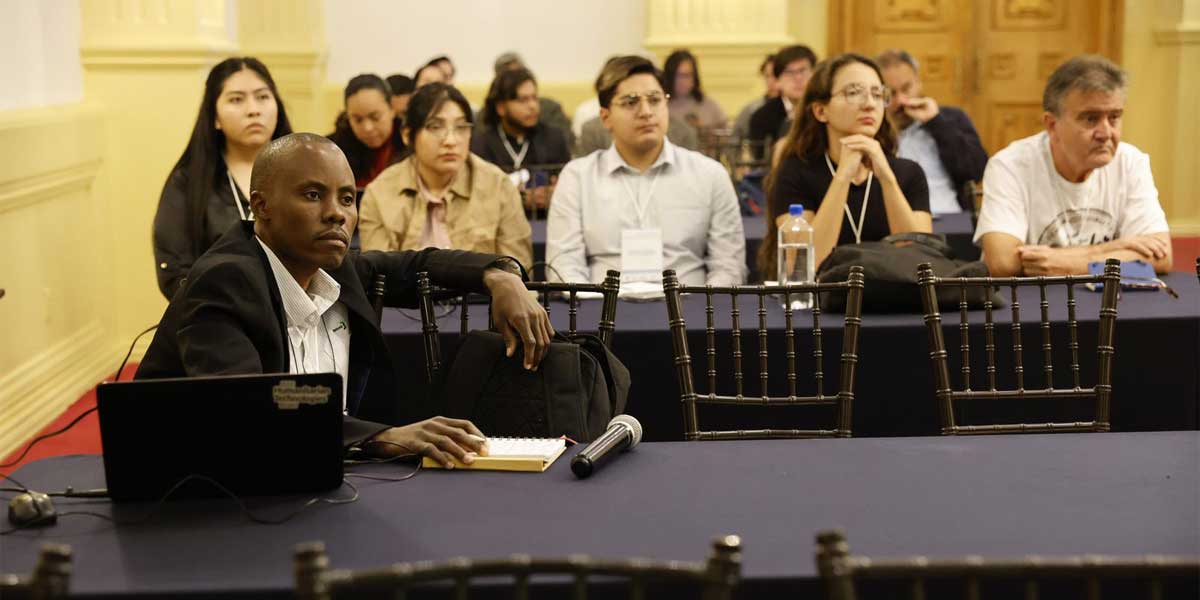
Reporter: Adda Avendaño / Photographer: Jorge Aguilar
Dr. Humberto Sossa Azuela inaugurated the event, which brings together the leading figures in science across Latin America.
The 2025 Latin American Conference on Computational Intelligence (LACCI) was held over three days, positioning itself as the leading scientific forum in Latin America dedicated to the exchange of knowledge, results, and experiences in the field of Computational Intelligence.
The IEEE LACCI Conference annually brings together researchers, faculty, professionals, and students from around the world to discuss the latest advances in neural networks, fuzzy logic, evolutionary algorithms, hybrid systems, deep learning, and their applications in artificial intelligence.
As part of the conference program, Brazilian researcher Fábio Duarte, faculty member at the Massachusetts Institute of Technology (MIT), highlighted the importance of computational tools to map and monitor urban dynamics—particularly in marginalized neighborhoods—to better understand how they function and ultimately improve urban management.
Speaking at LACCI, organized by three members of the Institute of Electrical and Electronics Engineers (IEEE)—including two affiliated with the Instituto Politécnico Nacional (IPN)—Dr. Duarte presented research conducted in Brazil’s marginalized neighborhoods known as favelas.
“In Brazil, as in most countries, censuses take place every ten years, so there is no zoning or land-use plan. Mapping these areas is extremely difficult because they have very narrow alleys covered by the roofs of the houses,” the Brazilian scientist explained.
He noted that the team initially considered using satellite imagery, but this proved ineffective since many streets disappear when located along hillsides or within tight clusters of homes. They also considered using drones, but that would invade residents’ personal space.
Eventually, he said during his presentation, they turned to a portable laser scanner capable of gathering data through a pointer and later generating a 3D map—always with the informed consent of residents, which he acknowledged is the most challenging part.
The 2025 IEEE Latin American Conference on Computational Intelligence, held this year at the Hotel Geneve in Mexico City, is the foremost scientific forum in the region devoted to sharing knowledge, results, and experiences in Computational Intelligence, stated Juan Humberto Sossa Azuela, Director of the Centro de Investigación en Computación (CIC) of the IPN.
During the inaugural declaration, he emphasized that the conference is organized by professors Ilse Cervantes Camacho of the CICATA Querétaro, Amadeo José Argüelles Cruz of the CIC, both from the IPN, as well as Dr. José Alfredo F. Costa, professor at the Federal University of Rio Grande do Norte, Brazil, under the auspices of the IEEE Computational Intelligence Society.
For her part, Dr. Ilse Cervantes Camacho, a member of the organizing committee, highlighted that IEEE LACCI is more than a conference—it is a collective achievement resulting from years of work, cooperation, and trust among Latin American communities dedicated to Artificial Intelligence and Computational Intelligence.
“We are a region that has learned to turn challenges into opportunities, to transform limitations into innovation, and to understand technology not as an end, but as a means for social progress,” she affirmed.